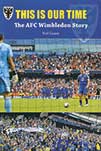 The AFC Wimbledon story
The AFC Wimbledon story
by Niall Couper
Cherry Red Books, £14.99
Reviewed by Andy Brassell
From WSC 313 March 2013
Author Niall Couper wrote in the Independent that his “stomach turned over” when AFC Wimbledon were drawn against Milton Keynes in the FA Cup second round this season. Nevertheless, it made his latest work all the more germane. This Is Our Time is Couper’s second book on Wimbledon, following 2003’s The Spirit Of Wimbledon which traced the area’s footballing lineage from 1922 through to the formation of AFC Wimbledon in 2002. You don’t necessarily need to have read that to grasp the thread of events for the sequel, though the opening pages of the book give a potted history of the club’s evolution from the 19th century to the brink of the Milton Keynes move.
The nuts and bolts of the story are well known to most regular football fans, from the three-man appeal commission that ratified the Milton Keynes move in late May 2002 to the open trials on Wimbledon Common that helped to find players for the first AFC Wimbledon team. Yet the book is plugging a significant gap – not just because of the detail contained in its 608 pages. The problem with any fan-based discourse surrounding AFC Wimbledon since their formation has been obvious. How do you establish an anti-establishment view when the fans themselves are that establishment?
There’s no whitewashing of opinion here (as anti-Milton Keynes voices have often been accused of doing) or even an author’s “this is how it happened” party line. Instead, Couper hands over the right to be heard to the people, with the story told by a succession of talking heads, from players and managers to board members, trust volunteers and those who pay at the turnstiles each week.
What emerges is not one linear truth but several versions of it, an account of the growing pains inherent in a protest movement becoming a semi-professional (and later professional) football club. So we hear about the dismissal of the club’s first manager, Terry Eames, through board members who became sick of him and fans who felt as if the club sold out “one of us”. There’s also the tale of how the club’s very ethos was questioned, with businessman Darragh MacAnthony’s attempt to buy the club out in 2006 before he assumed control of Peterborough United. Recently fired boss Terry Brown even offers a window into his own downfall, admitting he thought he may have “made a mistake” in signing defender Callum McNaughton from West Ham.
The format does occasionally spill over the line from thorough into exhaustive, such as in the section on reaction to the Conference play-off final win when it feels as if half the game’s attendees are canvassed for opinion. Yet This Is Our Time is a commendable, thorough and honest piece of work. Even if history is told by the winners, there’s nothing to say they can’t be objective and that’s what Couper does so well here.
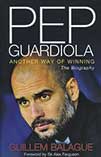 by Guillem Balague
by Guillem Balague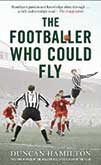 by Duncan Hamilton
by Duncan Hamilton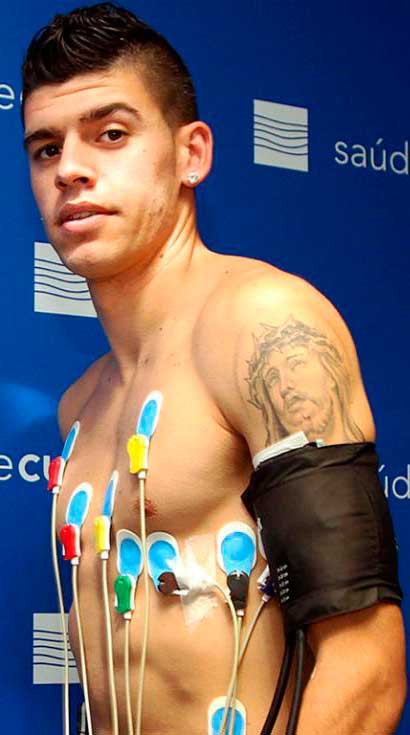
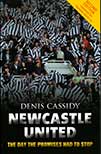 The day the promises had to stop
The day the promises had to stop